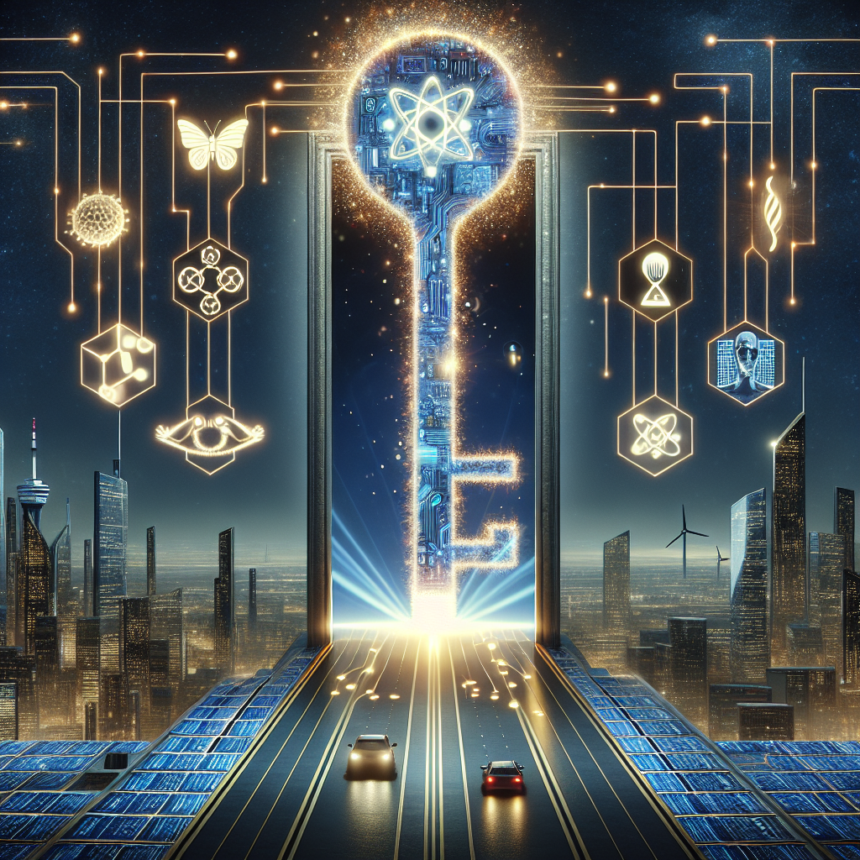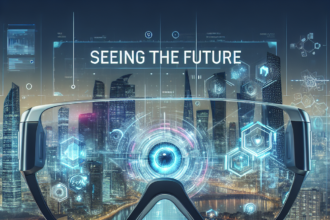As we journey into the future, technology continues to evolve at a blistering pace, fundamentally reshaping our lives, economies, and the very fabric of society. While many technologies have come and gone, several emerging technologies are poised to transform the way we live, work, and interact. Here’s an exploration of the top five emerging technologies that are unlocking the future.
1. Artificial Intelligence (AI) and Machine Learning
Artificial Intelligence (AI) has rapidly progressed from a theoretical concept to an essential component of modern life. With applications ranging from chatbot customer service to sophisticated predictive analytics, AI and machine learning algorithms are revolutionizing industries. These technologies enhance efficiency, automate routine tasks, and drive better decision-making. The healthcare sector relies on AI for diagnostics and personalized treatment plans, while finance departments harness the power of AI to detect fraud and optimize investments. As AI continues to evolve, its integration with other technologies like natural language processing and robotics promises to further improve our lives.
2. Blockchain Technology
While commonly associated with cryptocurrencies, blockchain technology’s potential far exceeds digital currency. At its core, blockchain is a decentralized ledger that ensures transparency, security, and data integrity. Industries such as supply chain management, healthcare, and finance are beginning to adopt blockchain to improve traceability and reduce fraud. For instance, in agriculture, blockchain can track the origin of food products, ensuring safety and quality for consumers. As governments explore regulatory frameworks, and companies adopt this technology, we can expect a future where transparency and trust become the norm in numerous sectors.
3. Augmented Reality (AR) and Virtual Reality (VR)
Augmented Reality (AR) and Virtual Reality (VR) are changing how we perceive and interact with the world. While VR immerses users in a computer-generated environment, AR overlays digital information onto the real world. These technologies have gained traction in gaming and entertainment, with popular platforms creating immersive experiences. However, their applications extend far beyond. In education, AR and VR foster interactive learning experiences, allowing students to engage with the material practically. In the healthcare field, simulations can enhance surgical training, equipping healthcare professionals with real-world skills without the risks associated with actual procedures. The potential for AR and VR to enhance various industries continues to expand.
4. 5G Technology
The rollout of 5G technology promises a leap forward in connectivity. With increased data speeds, reduced latency, and the capacity to support more connected devices, 5G sets the stage for innovations in various sectors. Smart cities, Internet of Things (IoT) devices, and autonomous vehicles depend on robust connectivity. The ability to connect millions of devices simultaneously and transmit vast amounts of data in real time will revolutionize industries such as transportation, manufacturing, and healthcare. As 5G networks become the standard, we can expect smarter, more efficient systems that will enhance quality of life and streamline processes.
5. Quantum Computing
Quantum computing represents a groundbreaking shift in the realm of computation. Unlike traditional computers, which use bits, quantum computers employ quantum bits (qubits) that operate on principles of quantum mechanics. This allows them to process information at unprecedented speeds, tackling complex problems that are currently beyond the reach of classical computers. Industries like cryptography, pharmaceuticals, and materials science stand to benefit immensely from quantum computing, where simulations and calculations can be performed in seconds rather than years. As advancements in this field continue, the impact on technology, research, and development could be monumental.
FAQs
Q: How will these emerging technologies impact job markets?
A: While emerging technologies will create new job roles, they may also render some positions obsolete, particularly in routine tasks. Adaptation through reskilling and upskilling will be imperative for the workforce to align with the changing landscape.
Q: Are there ethical concerns regarding AI and machine learning?
A: Yes, ethical concerns such as data privacy, bias in algorithms, and job displacement are paramount. It is vital for stakeholders to engage in conversations about responsible AI use and ensure transparency in algorithmic decision-making.
Q: How can businesses leverage these technologies?
A: Businesses can integrate these technologies into their operations to improve efficiency, enhance customer experience, and drive innovation. By investing in research and development and adopting new tools, organizations can maintain competitiveness.
Q: What role will governments play in regulating these technologies?
A: Governments play a crucial role in establishing regulatory frameworks that ensure the safe and ethical use of emerging technologies. This includes addressing issues such as privacy, security, and equitable access to technology.
Q: Is quantum computing accessible to everyone?
A: Currently, quantum computing is still in the experimental phase and is primarily accessible to research institutions and tech companies. As the technology matures, we can anticipate broader applications and access, albeit with a learning curve.
As we stand on the brink of a technological revolution, understanding these five emerging technologies and their implications is crucial for individuals, businesses, and governments alike. The future awaits, and it promises to be both exciting and transformative.











